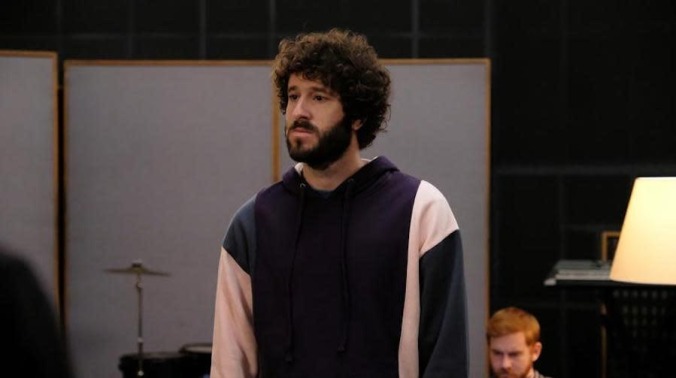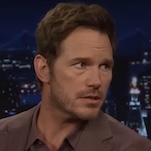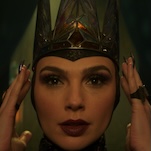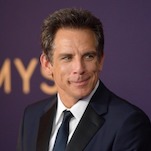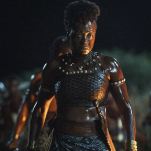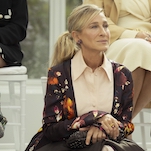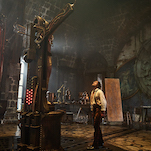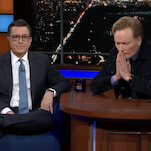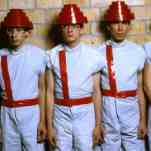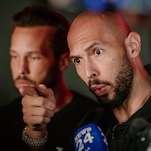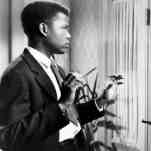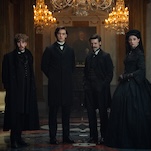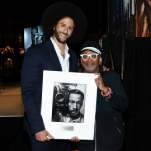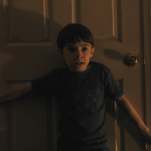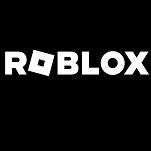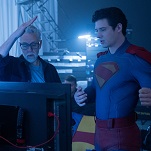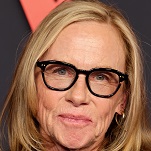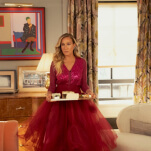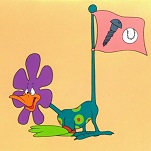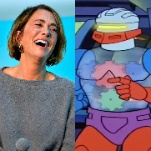It seemed a curious choice, then, when FX went and greenlit a show from Lil Dicky, a.k.a. Dave Burd, a YouTube rapper with one album and a handful of viral songs to his name. Groans quickly chased this Vulture interview in which Burd remarks on how “funny” it is that he, a guy with “zero resumé in this space,” was able to score his very own semi-autobiographical comedy at a major network.
“My whole life, I wanted to be a comedian. I grew up idolizing the Larry Davids, the Adam Sandlers, and the Seth Rogens of the world,” he said when asked what “qualified” him for the show. “I loved movies. I loved TV shows. I loved Seinfeld. I loved Curb. I felt like the feedback I was getting as a child when I met people was, ‘Oh, you’re really funny.’ I found that very validating. I thought to myself, ‘I don’t believe the Larry Davids or Seth Rogens of the world began as anything more than somebody’s funny friend.’”
A pitch like that isn’t likely to please anyone, most assuredly not those who see viral fame as nothing more than dumb luck. Burd rose to prominence in 2013, when his video for the filthy, fitfully amusing “Ex-Boyfriend” got more than a million YouTube views in 24 hours (it’s on the verge of cresting 40 million as of this writing). Since then, he dropped an album, a music video featuring just about every mainstream pop artist, and a controversial hit song with Chris Brown that some accused of downplaying Brown’s history of domestic abuse.
Burd is not without talent, but one can’t shake the sense that behind the curtain there’s a room full of suits desperate to make him happen, to somehow replicate the instant success of “Ex-Boyfriend.” A cursory glance at his resumé shows us blunt object after blunt object (rampant dick jokes, cameos, controversy) and a background—upper-middle-class kid from Philly who worked in advertising—that doesn’t necessarily cry out for dramatization. Throw in the fact that media mogul and manager to the stars Scooter Braun is an executive producer and it’s easy to envision Dave as little more than a commercial punctuated with jokes about dicks, a Curb-style showcase for the artists that already dominate cultural conversations around mainstream rap and pop. Dave was advertised with an image of Burd popping through the flap of a pair of boxer briefs. Get it? You totally get it.
But this is FX. And Burd created his series with Jeff Schaffer, the Seinfeld and Curb Your Enthusiasm writer who also created The League, another very good show that very easily could’ve been very bad. The writers’ room, meanwhile, is filled with alums from It’s Always Sunny In Philadelphia, New Girl, and The Boondocks; directors include Superbad’s Greg Mottola and American Vandal’s Tony Yacenda. These are humorous people, and you only need to watch the first episode of Dave to see that, yes, it is indeed funny.
But Dave isn’t good because it’s funny (though that helps). Dave is good because it knows you think you know what it is. Yes, Dave is about a white rapper named Lil Dicky clawing his way to the hip-hop throne, but what simmers beneath the surface is a tension between perception and reality in a world where virality has become necessary to success. Burd knows rapping about his small, mangled penis will get him clicks, just as he knows yelling “Somebody suck me!” while dressed like Jim Carrey in The Mask will turn him into a meme. That’s the easy part. Dave is about what happens next. How do you ascend to the next level? How does you become an “artist,” as opposed to a purveyor of content?
Dave adds dimensional layers with the realization that his dirty, self-deprecating rhymes aren’t just an attention grab. His relationship with Ally (Taylor Misiak) is consumed by the penis anxiety he pokes fun at in “My Dick Sucks,” the onscreen Burd’s most successful single to date. His penis operates fine, we learn, but he was born with a tangled urethra and the subsequent surgeries left it scarred and looking, in his words, like “an old pile of worms.” That anxiety, of course, feeds into a general sense of sexual anxiety, which results in blowout fights over ass-eating and silicone fuck toys that are somehow as honest and vulnerable as they are hilarious.
Dave isn’t the first show to navigate this balance of the vulnerable and profane, nor is it the first to frame them through the tension between one’s true self and their artistic identity. But the distinctions between “Dave” and his stage persona “Lil Dicky” are more nuanced than in most comedic portraits of an artist and their art, and they speak to the fine line that separates IRL and online in an era when the two are becoming more and more entwined. In Dave, “My Dick Sucks” can be a novelty track angling for virality and a vulnerable portrait of body dysphoria at the same time.
But Dave is more than its themes. It’s hilarious, for one, with episodes leavening the blue humor promised by its poster with some deliriously playful cringe and the subtle banalities of its core ensemble. That ensemble deserves credit, too; Misiak’s Ally is radiant and playful, while Davionte “GaTa” Ganter, Burd’s real-life hype man, translates his friendship and history with the star to comedic and emotional effect.
Now, more than two months since it premiered, I sit here kicking myself that it took FX announcing Dave as its “most-watched comedy series ever” (and, let’s be honest, a global pandemic) for me to finally boot up that first episode. Don’t make my mistake.
